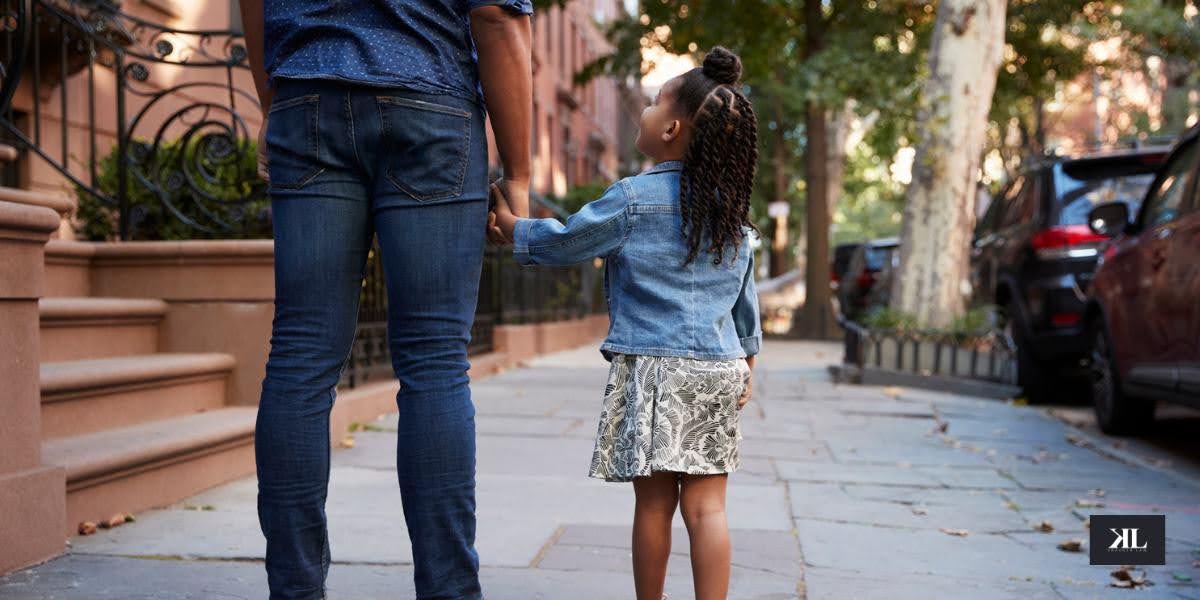When navigating the complex world of family law, understanding the different types of child custody is crucial. One of the primary types is sole custody, which can significantly impact the lives of both the parent and the child involved. In this blog post, we will explore what sole custody is, delve into its advantages and disadvantages, and provide some insights to help you make an informed decision if you’re considering this custody arrangement.
What is Sole Custody?
Sole custody means that one parent has exclusive legal and physical custody of the child. This parent makes all the major decisions regarding the child’s upbringing, including education, healthcare, and religious upbringing, without needing to consult the other parent. The non-custodial parent might still have visitation rights, but they do not have a say in these critical decisions.
Understanding Sole Custody
To fully grasp what sole custody entails, it is important to understand its two main components:
-
Legal Sole Custody:
-
Decision-Making Authority: The parent with legal sole custody has the exclusive right to make significant decisions about the child’s welfare. This includes choices about the child’s education, such as which school they will attend, what type of medical care they will receive, and what religious practices they will follow.
-
Autonomy: This parent can make these decisions independently, without needing to discuss or agree with the non-custodial parent. This can be beneficial in situations where parents have different views or are unable to communicate effectively.
-
-
Physical Sole Custody:
-
Primary Residence: The child lives primarily with the parent who has physical sole custody. This parent is responsible for the child’s day-to-day care, which includes providing a home, food, clothing, and other basic needs.
-
Daily Routine: The custodial parent oversees the child’s daily activities, such as ensuring they attend school, participate in extracurricular activities, and complete homework.
-
Why Courts May Award Sole Custody
In many cases, courts prefer joint custody arrangements to ensure that both parents remain actively involved in the child’s life. However, sole custody may be awarded when joint custody is not in the child’s best interests. This decision can be influenced by several factors:
-
Parental Unfitness:
-
If one parent is deemed unfit due to reasons such as substance abuse, neglect, or abuse, the court may grant sole custody to the other parent. This is to protect the child from a harmful environment and ensure their safety and well-being.
-
-
Parental Relocation:
-
Sometimes, one parent may need to move to a different city or state for work or personal reasons. If this relocation makes joint custody impractical or impossible, the court might decide that sole custody is more suitable to maintain the child’s stability and continuity in their home environment.
-
-
Conflict and Communication Issues:
-
In situations where parents have high levels of conflict and cannot effectively communicate or co-parent, sole custody might be considered. Constant disagreements and inability to cooperate can create a stressful and unstable environment for the child. Sole custody can help to minimize this conflict and provide a more peaceful upbringing.
-
-
Best Interests of the Child:
-
The primary consideration in custody decisions is always the best interests of the child. This includes evaluating the emotional bonds between the child and each parent, the ability of each parent to meet the child’s needs, and the child’s adjustment to their home, school, and community. If the court believes that sole custody with one parent will better serve these interests, it may grant sole custody.
-
Visitation Rights of the Non-Custodial Parent
Even when sole custody is awarded to one parent, the non-custodial parent typically retains visitation rights. These rights allow the non-custodial parent to spend time with the child and maintain a relationship.
Visitation schedules can vary widely, ranging from regular weekend visits to extended time during school holidays or summer vacations. The specifics of visitation are usually detailed in the custody agreement and can be adjusted based on the needs and circumstances of the family.
Advantages of Sole Custody
1. Stability and Consistency
One of the primary advantages of sole custody is the stability and consistency it offers the child. When a child lives in one home with one set of rules, it creates a predictable and secure environment. This stability is especially beneficial for younger children who thrive on routine. Knowing what to expect each day helps them feel safe and confident.
In contrast, moving between two homes with different rules and routines can be confusing and stressful for a child. Sole custody ensures that the child has a single, consistent environment where they can grow and develop healthily.
2. Simplified Decision-Making
With sole custody, the custodial parent has the exclusive right to make all significant decisions regarding the child’s life. This means the custodial parent doesn’t need to consult or agree with the other parent on major issues. This streamlined decision-making process can reduce potential conflicts and misunderstandings.
For example, when deciding on the child’s education, the custodial parent can choose the best school without needing the other parent’s approval. Similarly, medical decisions, such as selecting a doctor or consenting to treatments, can be made quickly and efficiently. This simplicity ensures that decisions are made in the child’s best interest without delays or disputes.
3. Protection from Unfit Parents
In situations where one parent is deemed unfit due to issues such as substance abuse, neglect, or abuse, sole custody offers critical protection for the child. The court awards sole custody to ensure the child’s safety and well-being.
The custodial parent can make decisions that prioritize the child’s health and security without interference from the unfit parent. This protection extends to everyday life, shielding the child from potentially harmful environments and influences. By having sole custody, the responsible parent can create a nurturing and safe home where the child can thrive without fear or instability.
4. Emotional Stability
Having one primary caregiver under a sole custody arrangement can significantly enhance the child’s emotional stability. This primary caregiver becomes the child’s main source of emotional support and guidance.
A strong emotional bond is crucial for a child’s development, providing them with a sense of security and attachment. In a sole custody situation, the child knows they can rely on one parent consistently, which helps them feel loved and valued.
This emotional stability can positively impact their self-esteem and overall mental health. In contrast, children in shared custody arrangements might struggle with divided loyalties and less consistent emotional support.
Disadvantages of Sole Custody
1. Limited Parental Involvement
One significant disadvantage of sole custody is that it limits the involvement of the non-custodial parent in the child’s life. When only one parent has custody, the child may not spend as much time with the other parent.
This can affect the child’s relationship with that parent and may lead to feelings of loss or abandonment. Children generally benefit from having relationships with both parents. They get different perspectives, love, and support from each parent, which helps in their overall development. In a sole custody arrangement, this balance is often missing, which can hinder the child’s emotional and psychological growth.
2. Increased Responsibility for the Custodial Parent
Another major disadvantage of sole custody is the increased responsibility placed on the custodial parent. This parent must handle all aspects of raising the child, including work, childcare, and household duties. Juggling these responsibilities alone can be overwhelming and exhausting.
Emotionally, the custodial parent might feel isolated or stressed due to the lack of support from the other parent. Financially, managing all expenses alone can be challenging. Costs associated with childcare, education, healthcare, and daily needs can add up quickly. This increased burden can lead to burnout and may impact the custodial parent’s ability to provide the best care for the child.
3. Potential for Parental Alienation
Sole custody can sometimes lead to parental alienation. This occurs when the child becomes estranged from the non-custodial parent. In some cases, the custodial parent might speak negatively about the non-custodial parent or limit their contact with the child.
This can create a rift between the child and the non-custodial parent, leading to long-term psychological effects. The child may feel confused, conflicted, or pressured to choose sides. This strained relationship can cause emotional distress and impact the child’s self-esteem and trust in relationships.
4. Legal and Financial Burdens
Lastly, sole custody can bring significant legal and financial burdens. The custodial parent might face legal challenges, especially if the non-custodial parent contests the custody arrangement. These legal battles can be stressful and costly.
Financially, the custodial parent bears the full burden of providing for the child. This includes the cost of childcare, education, healthcare, extracurricular activities, and other daily expenses. Additionally, the custodial parent may need to seek child support from the non-custodial parent, which can lead to further legal proceedings and stress.
Ensuring that the child support is paid and managing the financial aspects of raising a child alone can be daunting. These legal and financial pressures can add to the emotional strain on the custodial parent, affecting their overall well-being and their ability to provide for the child effectively.
Frequently Asked Questions About Sole Custody in NY
Deciding on custody arrangements can be challenging and confusing for parents. Understanding the specifics of sole custody in New York can help you make informed decisions. Here are answers to some common questions about sole custody in NY.
What Does Sole Custody Mean in NY?
In New York, sole custody means one parent has full physical and legal custody of a child. This parent is responsible for the child’s daily care and makes all important decisions about the child’s life, such as those involving education, healthcare, and religious upbringing, without needing the other parent’s approval.
The other parent, known as the non-custodial parent, may still have visitation rights but cannot make decisions about the child’s upbringing.
Can a Parent with Sole Custody Move Out of State in NY?
A parent with sole custody in New York cannot move out of state with the child without either the other parent’s consent or a court order. The court treats this as a “relocation” and must determine if the move is in the child’s best interests.
The parent who wants to move must show that the move will improve the child’s life, considering factors like better educational opportunities, emotional well-being, and financial stability. The court will also look at how the move will affect the child’s relationship with the non-custodial parent and whether the visitation can still happen reasonably.
At What Age Can a Child Decide Which Parent to Live With in NY?
In New York, there is no set age when a child can decide which parent to live with. The court might consider the child’s preference, especially if the child is old enough and mature enough to make a thoughtful choice.
Generally, the older and more mature the child, the more the court will consider their wishes. However, the child’s preference is only one part of the decision, and the court will always focus on what is best for the child’s overall well-being.
Can I Take My Child Out of State if There is No Custody Order in NY?
If there is no custody order in place in New York, either parent can technically take the child out of state. However, doing so without the other parent’s agreement can lead to legal problems and might not look good if the court later gets involved in a custody case.
If one parent takes the child out of state without the other parent’s permission, the left-behind parent can ask the court for custody and request that the child be brought back. It is a good idea to talk to a lawyer before making such a decision to avoid any legal issues and to ensure you are following New York’s family law.
Understanding these aspects of sole custody in New York can help parents make better decisions and avoid potential legal problems. If you have more questions or need legal advice, it’s best to consult with a family law attorney.
Making the Right Decision
Deciding on sole custody is a big decision that needs careful thought. Here are some steps to help you make the best choice for your child and your family:
1. Think About What’s Best for Your Child
The most important thing is your child’s well-being. Consider:
-
Emotional Needs: Does your child feel safe and happy with you? Can you give them the emotional support they need?
-
Physical Needs: Can you provide a stable and safe home? Is your home good for their health?
-
Psychological Needs: How will the custody arrangement affect your child’s mental health? Will they get the psychological support they need?
Taking the time to think about these questions can help you decide if sole custody is right for your child.
2. Get Legal Advice
Understanding the legal side of custody can be tricky. Talk to a family law attorney. They can help you:
-
Understand your rights and duties.
-
Learn about the legal rules the court will use to decide custody.
-
Get advice on how to present your case.
Having a lawyer can make sure your rights and your child’s best interests are protected.
3. Consider Mediation
Mediation is when a neutral person helps parents agree on custody issues. It can be helpful because:
-
Reduces Conflict: Mediation can lower conflict between parents.
-
Focuses on the Child: Mediators focus on what’s best for the child.
-
Saves Time and Money: Mediation can be quicker and cheaper than going to court.
Try mediation if possible. It can help both parents agree on what’s best for the child without a court fight.
4. Prepare for Financial Responsibilities
With sole custody, you are financially responsible for your child. This includes:
-
Basic Needs: Food, clothes, and housing.
-
Education: School fees and supplies.
-
Healthcare: Medical, dental, and psychological care.
-
Childcare: Paying for daycare or babysitters if you work.
Make sure you are ready to handle these costs. You can ask for child support from the other parent. A lawyer can help you understand how to get child support.
5. Think About the Long-Term Impact
Consider how sole custody will affect your child and family in the long run. Think about your child’s relationship with the other parent. It’s usually good for children to have a positive relationship with both parents, even if one parent has sole custody. Encourage healthy communication and visits with the other parent.
6. Reflect on Your Own Well-Being
Your well-being is also important. Think about how sole custody will affect you physically, emotionally, and mentally. Make sure you have support from family, friends, or support groups to help you manage being the primary caregiver.
Deciding to seek sole custody is complex and needs careful thought. By thinking about what’s best for your child, getting legal advice, considering mediation, preparing for financial responsibilities, thinking about the long-term impact, and reflecting on your well-being, you can make a well-informed decision.
Conclusion
Understanding what sole custody is and weighing its advantages and disadvantages is crucial for any parent facing a custody decision. Sole custody can provide stability and protection but also comes with significant challenges and responsibilities. It’s essential to consider all aspects and seek professional guidance to ensure the best outcome for your child.
At Krasner Law, we know family law and are here to help you navigate these complex decisions with compassion and understanding. If you are considering sole custody or have any questions, please contact us for more information. Our dedicated team is here to support you and your family every step of the way.







